According to widespread media reports, about 2,000 female fans were allowed into Azadi Stadium on Thursday to watch the Iranian national football team beat Iraq 1-0, securing a place at the Qatar World Cup. The eleventh-hour decision was praised by many observers as a first step in the right direction after months of prevarication by Tehran. But there were some important caveats.
First, male ticket-holders still outnumbered both Iranian and Iraqi women five to one on the day. Video footage sent to IranWire by citizen journalists showed bus-loads of women in black chador being conveyed to the stadium, suggesting they had (again) been hand-selected for the privilege of entering the stands. The Ministry of Sports and Youth distributed special tickets to members of the media, further diluting the number of ordinary Iranian women who might have gotten a seat. Other female fans were seen left outside the stadium doors after kickoff.
The Ministry of Sports also appears to have drafted in a new set of recruits to help repair its tarnished image: Instagram influencers.
Two weeks ago on Tuesday, January 11, the Iranian newspaper Khabar-e Varzeshi published a short report on a gaggle of female Instagram stars, all uncharacteristically dressed in charcoal-colored veils, arriving at the Ministry of Sports building in Tehran. The next day, the same newspaper reported that the girls were there to discuss a virtual campaign promoting marriage.
"We’re going to a place where we were told to wear a veil," one of the influencers told the camera in a video she posted on her Twitter and Instagram accounts prior to the meeting. "That's why we’re looking for a veil shop right in the Saadatabad [an affluent neighborhood of Tehran]." The group also filmed themselves laughing and taking selfies together in the corridors while a group of austere-looking officials looked on.
The Ministry of Sports’ PR department issued a statement on the same day flatly denying the claims. The girls had not been invited there at all, it said, but were using its space because another meeting room was full. Vahid Yaminpour, the Ministry’s deputy for youth affairs, said they had been invited by a charity promoting marriage that shared the building.
Whatever the truth of the matter, the same Instagram influencers then showed up en masse at the Iran-Iraq match. They were seen standing prominently and taking selfies on the stands in the women’s section, to the chagrin of ordinary women who hadn’t been able to get a ticket. Many suspect that they were there as the Ministry’s special guests. Financial journalist Maryam Shokrani said the influencers’ live feeds were a bid “to show the ‘normal’ situation of women in Iran. Stay tuned for their other projects!”.
The Ministry of Sports has artificially increased the number of female fans at football games in the past by allowing a select few conservatives and journalists inside while keeping the doors closed to the vast majority. If this is part of the same ruse to placate FIFA as before, the only new addition to the ploy was the Instagram influencers. Uniformed female police and IRGC officers were also seen on the stands, as well as other actors such as Donya Madani.
Did FIFA Even Notice?
For the best part of a decade now FIFA has insisted the Iranian Football Federation abide by its international obligations and let all Iranian women into all stadiums, to watch all matches. Successive deadlines have come and gone, with the last one set for the Iran-Iraq game. Had Iran not been seen to be complying it could have faced suspension – and automatic expulsion from the World Cup.
In the immediate aftermath of Thursday’s match, FIFA’s online response was met with anger and incomprehension by some Iranian observers. Minutes after the end of the game and Iran's official qualification in the 2022 World Cup, FIFA posted a congratulatory cartoon on its official Twitter and Instagram pages. It featured ex-players like Ali Daei, Ali Karimi, Mehdi Mahdavikia, Javad Nekounam and Hamid Estili rejoicing on seeing “the next generation” head to Qatar, while football fans celebrated in the background. The fans were dressed differently and of different ethnic backgrounds. But not one woman was depicted among them.
Female social media users were quick to hit back, demanding to know where the women were. One told FIFA, “Your designer forgot 49 percent of our society”. Another posted an edited version of the cartoon in which anti-mandatory hijab protests, the hanging of Navid Afkari, the bereaved mothers of November 2019 protesters and a women being violently pushed into a van by the morality police had been added to the periphery.
Part of the reason FIFA has kept pushing the Islamic Republic to let women into stadiums has been unrelenting pressure from human rights organizations, online campaigners and Iranian women themselves. But the principle is also enshrined in FIFA’s own charter. The global football body has been clear: all women must be allowed to enter all stadiums throughout Iran, for all matches throughout Iran, not just at international contests, and not just at Azadi Stadium.
But on Thursday, January 27, videos sent to IranWire showed women shouting through the closed gates at security guards after being locked out of the online ticketing system, while a cluster of Instagram influencers were permitted inside. One of the women told IranWire that in fact, at no point in the run-up to the match had they been able to purchase tickets online. FIFA should be aware that while Thursday’s game might have been a victory for Team Melli, it was nothing of the kind for female football fans in Iran. The fight is very far from over.
Related coverage:
Women Can Attend the Iran v Iraq World Cup Qualifier, Officials Claim
Token Iranian Women Allowed Into Azadi Stadium to Placate FIFA
Another Day, Another FIFA Deadline on Iranian Women in Stadiums
FIFA's Demands to Iran Pronounced 'Against Islamic Law'
Caught Between FIFA and a Fatwa, Iran's Football Bosses Keep Pro League Matches Closed
Iranian Football Federation's Latest Ploy: Make Stadiums Look 'No Place for Women'
'We Can't Lie Forever': Football Federation in a Corner Over Women in Stadiums
40 Years Locked Outside Stadiums: A Chronology
March 4: FIFA's Deadline for Iran to Separate Politics from Football
visit the accountability section
In this section of Iran Wire, you can contact the officials and launch your campaign for various problems




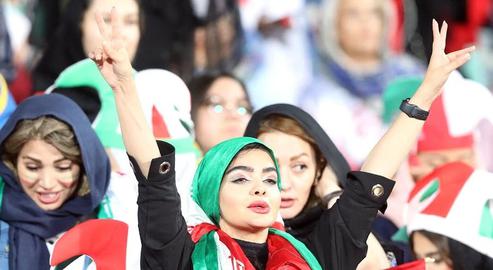
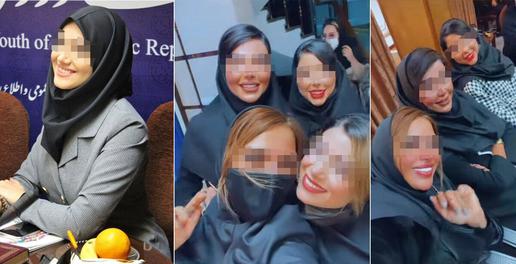
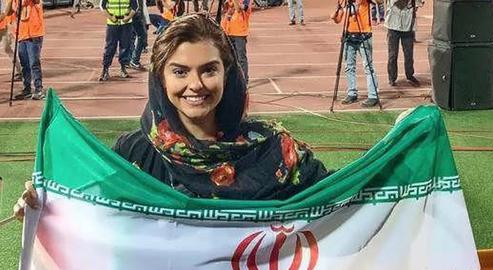
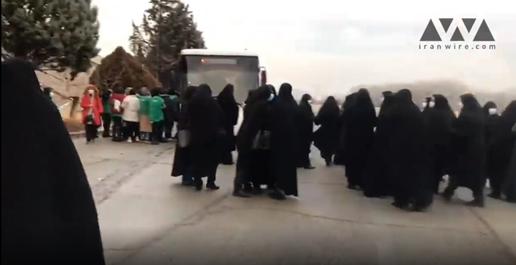
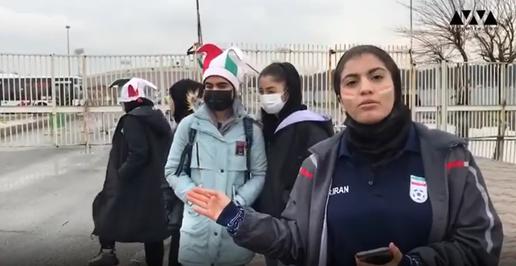
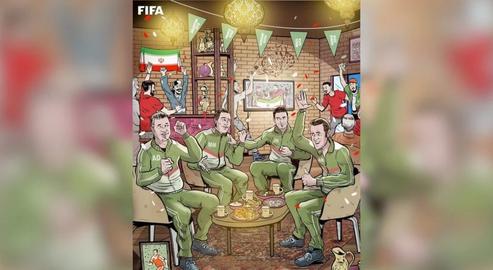








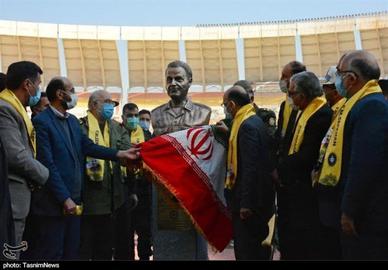
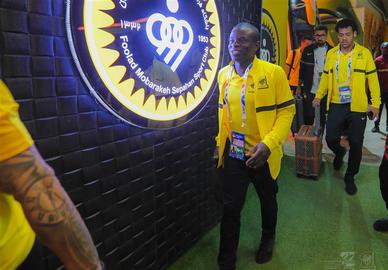







comments